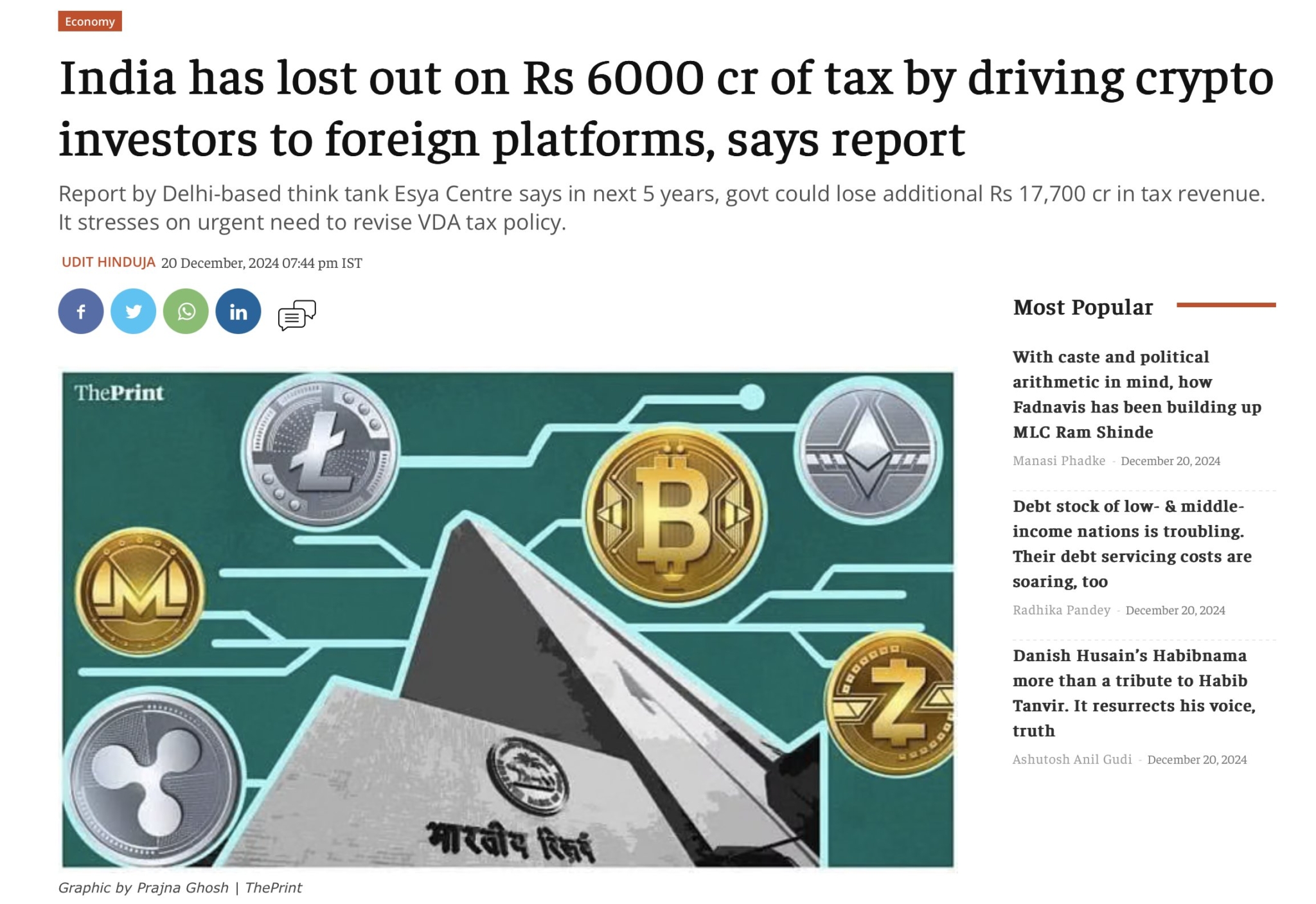- India lost ₹6,000 crore in tax as crypto traders shifted to foreign platforms.
- Offshore exchange activity by Indians rose 77% despite government restrictions.
- Reducing TDS and amending tax laws could recover ₹9,169–₹18,338 crore in five years.
India is losing significant revenue due to its current crypto taxes policies, as revealed in a report by the Esya Centre. The country missed out on ₹6,000 crore in taxes as crypto traders moved to foreign platforms. If the policies remain unchanged, India could lose an additional ₹17,700 crore over the next five years.

Why Is India Losing Crypto Revenue?
In July 2022, India introduced a 1% TDS (Tax Deducted at Source) on crypto transactions. While the intention was to regulate trading and collect taxes, this policy backfired. Many traders have shifted to offshore platforms to avoid that.
Between December 2023 and October 2024, Indian investors traded over ₹2,63,000 crore on foreign exchanges. Although the government blocked nine major offshore platforms in January 2024, only one has complied with TDS rules. Traders have also found ways to bypass restrictions using VPNs and alternative apps, leading to a 77% rise in activity on foreign platforms, compared to just 21% growth on local exchanges.
Steps to Fix the Tax Problem
The Esya Centre has suggested changes to make crypto trading in India more attractive and retain tax revenue. These include:
- Lowering the TDS Rate: Reducing the tax rate to 0.01% could ease the burden on traders and encourage them to use Indian platforms.
- Amending Tax Laws: Updating Sections 194S and 115BBH of the Income Tax Act to enforce tax compliance from offshore platforms operating in India, even if they don’t have a physical presence.
- Simplifying Regulations: Allowing foreign platforms to register and operate under local laws could boost compliance and revenue collection.
If these reforms are implemented in the next budget, India could generate ₹9,169 crore to ₹18,338 crore in tax revenue over five years. This would not only strengthen the domestic crypto ecosystem but also prevent traders from relying on foreign platforms.
Creating a balanced and trader-friendly tax policy is key to ensuring that India benefits from the growing crypto market. With better regulations, the government can boost investor trust, retain capital within the country, and unlock the full potential of the crypto economy.

